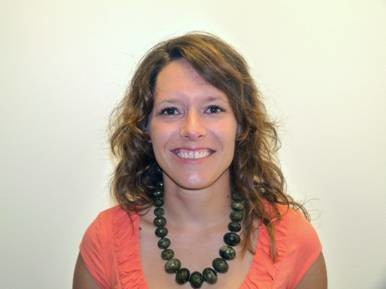 Please note your affiliation and years of experience in the energy and/or environmental field.
Please note your affiliation and years of experience in the energy and/or environmental field.
As an Economist with the U.S. Energy Information Administration (EIA), my area of expertise lies primarily in the international upstream oil and gas sectors. I conduct trend analysis, anticipate the impact these changes have on EIA data, and prepare short and mid-term supply forecasts with a focus on Canada, Mexico, the Americas, and non-OPEC Middle East.
Prior to the EIA, I worked as a Policy Analyst at the U.S. Department of Energy evaluating policies and programs focusing on energy efficiency and end-use analysis in buildings, manufacturing and industrial facilities, appliance standards, and transportation. I have over 10 years of experience focusing on electricity, grid infrastructure and modernization and energy efficiency. My experience also includes international trade expertise, having worked for the U.S. Commercial Service and the U.S. Department of Commerce.
I specialized in export counseling and conducted investigations to enforce U.S. antidumping duty (AD) and countervailing duty (CVD) trade laws. I have authored multiple publications in trade journals, ranging from international energy oil and gas analysis, energy productivity, the economics of international water disputes, to statistical analysis of annual trade flows. I hold a Masters of Arts in International Economics, Energy and Environmental Policy from the Johns Hopkins School for Advanced International Studies (SAIS). I completed my Bachelor of Arts in Economics at the University of California, Davis.
Any particular achievement/interest in energy/environment you would like to mention?
In 2009 I worked on the Smart Grid Investment Grant (SGIG) program undertaken through the American Recovery and Reinvestment Act of 2009 (ARRA) aimed to accelerate the modernization of the nation’s electric transmission and distribution systems. Through these projects, the SGIG program promoted investments in smart grid technologies, tools, and techniques that increase flexibility, functionality, interoperability, cybersecurity, situational awareness, and operational efficiency.
I worked with 7 utility grant recipients to execute their projects, worth over $372 million. I provided technical smart grid and electricity regulatory analysis, conducted project site visits, managed budgets, tracked metrics, financial and invoicing analysis, developed and implemented project management systems to strengthen planning and execution. All my grant recipients successfully completed their projects.
In your opinion, what are the important issues facing the energy industry nowadays?
I believe an important issue that we are seeing a trend in states being “first movers” in implementing energy policies or technology, independent of government or national involvement. If we are not careful, it could lead to a patchwork of uncoordinated policies. Understanding how state policies vary, their market impacts, and what the federal role is in working with states to create national energy policy is an important but uncertain piece of the puzzle for the future of the energy sector.
How long have you been a member of NCAC? Any particular NCAC memory you would like to share with us?
I have been a member since 2009. My favorite memory was the roast NCAC held last year for (to?) Adam Sieminski. It was a blast hearing the all the NCAC member poems, jokes and songs dedicated to his service. Energy nerds can be fun also!